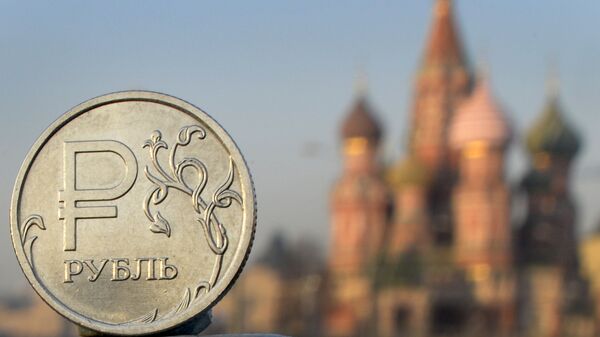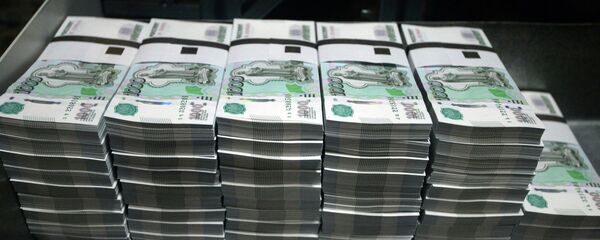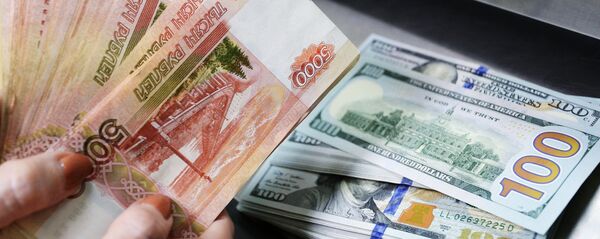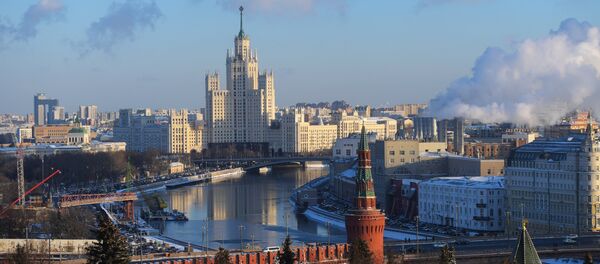Russia has set a course towards de-dollarization: Russian banks continue to reduce the volume of dollar-denominated transactions with foreign creditors, while the non-financial sector is replacing foreign currency obligations with those in rubles.
"There is a big trend toward the de-dollarization of the Russian economy. The Central Bank made some very important steps so that fewer foreign currency loans were issued," Russian Minister of Economic Development Maxim Oreshkin said Wednesday.
"We see what foreign exchange risks can lead to," the minister added.
The necessity to reduce the role of the US dollar in the Russian economy has long been the subject of debate; however, the issue took a new significance during the crisis, which peaked at the end of 2014 and early 2015, provoking a powerful collapse of the ruble and a sharp outflow of capital.
"The monetary policy of the regulator is aimed at reducing the interest rate to the European and international levels in the long-term so that both enterprises and individuals will be able to take out loans at 5-6 percent per year," the journalist noted.
At the same time, the Central Bank also introduced stricter requirements for those planning to take out mortgages in foreign currencies: now these mortgages can only be issued if the borrower also receives a salary in a foreign currency.
The move is justified by the difficulties Russian foreign currency mortgage lenders found themselves in after the collapse of the ruble a few years ago.
"As a result, the number of these loans are steadily declining," Dembinskaya pointed out.
If the policy aimed at reducing dependence on the dollar is fully implemented, it will sharply increase the demand for rubles, the journalist remarked.
"Experts suggest that financial authorities can go even further and adopt a decree regulating the share of foreign currency loans taken out by companies, for the sake of national security," the journalist continued.
To complicate matters further, the interest payments on these debts exerted pressure on the ruble and actually resulted in the outflow of capital.
If Russian companies begin to take out loans in rubles, then the outflow of capital in the form of interest payments will be reduced providing an obvious benefit for the Russian economy, Dembinskaya underscored.
"In general, de-dollarization will allow the economy to become more resilient to external shocks, more stable and balanced, analysts predict. Until now, companies have largely been interested in 'long borrowings' in foreign currency, while the ruble was almost ignored," she stressed.
Following the adoption of the sanctions bill, Russian Deputy Foreign Minister Sergey Ryabkov signaled that Russia will work to cut its dependence on the US dollar as a payment currency.
"We, of course, will intensify work linked to import substitution, reduction of some dependence on US payment systems, the dollar as a payment currency… This is becoming a necessity," Ryabkov told the International Affairs magazine.
For his part, Valery Vasiliev, the deputy chairman of the Russian Federation Council's Committee on Economic Policy, told Sputnik last week that while Russia needs to reduce the use of the US dollar, this should be done gradually.
"It will be difficult to stop using the dollar quickly but this should be done gradually with minimum costs for the Russian economy," Vasiliev explained.







